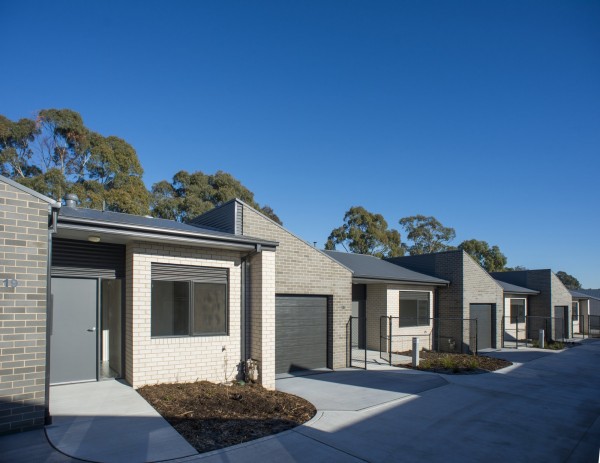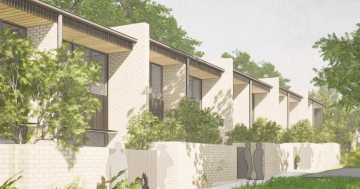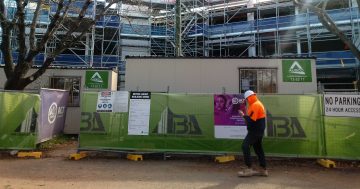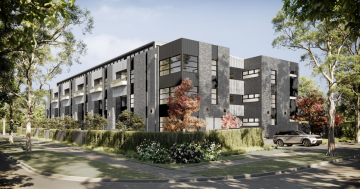
Public housing in Canberra consists of a mix of multi-level units and individual dwellings spread across the city. Photo: ACT Public Housing Renewal Taskforce.
It’s true that there is no single cause for the second wave of COVID-19 cases in Melbourne. Undoubtedly, this disease is incredibly contagious, and when combined with key trigger factors, its spread is inevitable.
But one thing we have learnt, and that public health and community development experts have been saying for much longer than the pandemic, is that high density and poor infrastructure in housing increase the spread of disease. The public housing towers in Melbourne demonstrate this clearly.
Not only do the towers house hundreds of individuals in single buildings, but the corridors, stairwells and lifts are not large enough to allow for proper social distancing. This means that it is virtually impossible to avoid the spread of COVID-19 once one active case is present.
The issue of social housing is one that has long needed to be addressed across Australia, and a move away from high-density multi-storey complexes towards a more effective and integrated approach has been called for by housing experts and community development advocates for decades.
While that important conversation is better served by experts, there is a broader lesson to be learned from this current crisis. When we compare the experience of the pandemic in capital cities with much higher density such as Sydney and Melbourne to the experience we have had in Canberra, it’s clear that our Territory is much better equipped for implementing effective social distancing and hygiene measures.
Our existing low-density structure means that suburbs are able to be largely isolated with people working from home and able to access basic amenities in their immediate vicinity, rather than having to travel throughout the city, increasing the risk of contamination.
Public housing in Canberra consists of a mix of multi-level units and individual dwellings spread across the city, which also has a positive effect when it comes to limiting the spread of the virus.
While there are numerous areas for improvement when it comes to ACT public housing (access to public transport and amenities for residents now located outside of the city centre, and the long waiting times for new residents are just some issues that could be improved), the focus on lower density to date has been to our benefit during the pandemic.
But we only have to look at the range of current property developments underway to see that increased density is on the cards for Canberra, and if the current government has its way, our city will have to discard the much-loved moniker of the ‘Bush Capital’ for ‘Apartment Central’.
High rise apartment developments are underway across the city, with a focus on driving more people to living clustered around major town centres.
Undoubtedly, this is going to irrevocably change the nature of our city and the way it functions, creating higher demand for access to the city centre, pushing more people onto the roads and into contact with each other.
There are many reasons for my distaste of the slew of apartments being built in Canberra, primarily because I disagree with public housing being moved further away from amenities, I’m confused as to who exactly is going to live in all of these (very expensive) developments, and because, frankly, I find a lot of them to be visually unappealing.
But even if you are a big fan of new apartment developments, it’s hard to deny that one of the key factors driving Canberra’s lower COVID-19 infection rate has been our ability to avoid congregating or coming in contact with groups of people outside our immediate bubble, something that is only possible because of our low-density, independent suburban infrastructure.
Pandemic or no pandemic, I think that is something worth celebrating and fighting to retain. These uncertain times offer an opportunity for reflection and redirection – the question is, will we learn from our wins or just our mistakes?
Zoya Patel is a writer and editor based in the ACT, and was the 2015 ACT Young Woman of the Year.





















